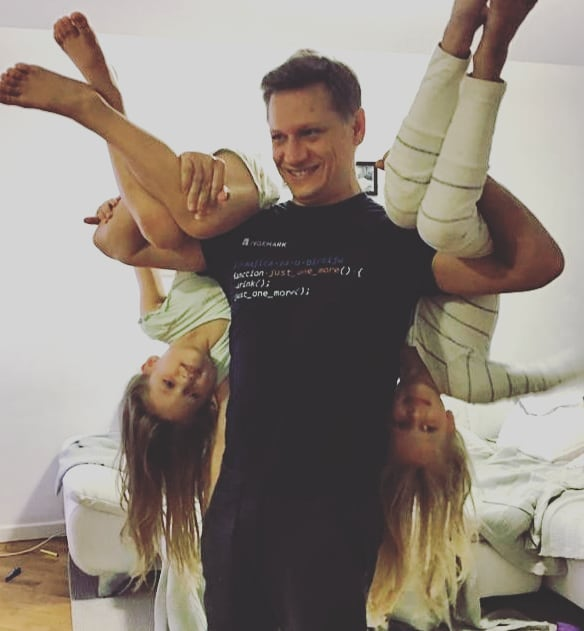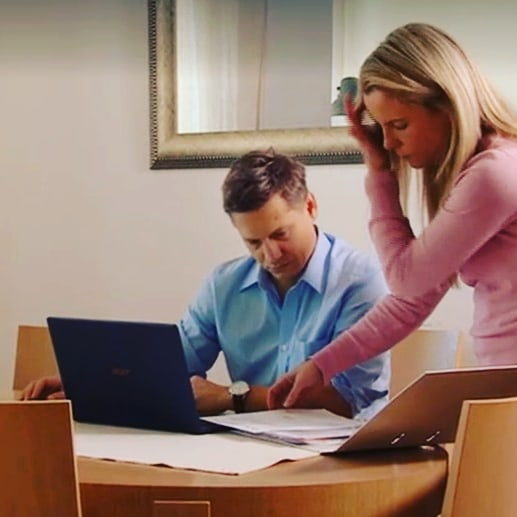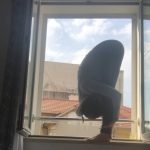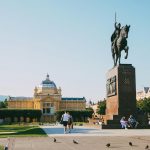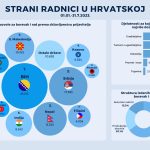April 3, 2020 – Do foreigners in Croatia feel more or less safe sitting out COVID-19 here than in their home country, and what are their experiences? A new series on TCN, with Eugene Brcic Jones from Australia in Zagreb as our 18th contributor.
Oxford University recently published some research on government responses to coronavirus which showed that Croatia currently has the strictest measures in the world. While inconvenient, this is a good thing in terms of reducing the spread of the virus, and I am certainly not alone in my admiration of the official Croatian handling of this crisis in recent weeks, both in terms of action and communication.
But what do other expats here think? And how does it compare with the response in their home country? Would they rather sit this one out here or there? In the first of a new series on TCN, we will be featuring expats from all over the world to see what their views are on life in corona Croatia rather than back home. So far we have heard from expats in Croatia from Romania, USA, Ireland, UK, Mexico, Argentina, Spain, Singapore, Holland, Canada, India, Hong Kong and Germany. Next up, Eugene Brcic Jones from Australia in Zagreb. I wonder how much toilet paper he has stockpiled.
If you would like to contribute to this series, full details are below. Now, over to Eugene.
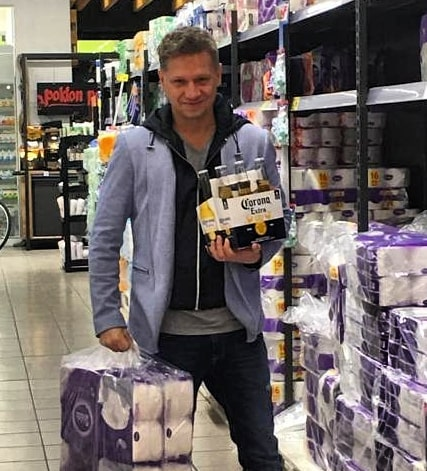
Firstly, how are you? Are you alone/with someone? Tell us a little about your situation and sanity levels.
I’m fine, the hole I’ve been meticulously digging under the building to freedom is nearly done, so my spirits are high. Seriously though, I’m a firm believer that adaptation is one of the most important abilities in this day and age, so I think I’m doing better than most. I’m in Zagreb, in an apartment with my Australian wife Michelle and two kids Eden (6) and Emerson (5). We came to Croatia almost three years ago. My parents came to Croatia from Australia in 1991. They are also in Zagreb momentarily, spending a lot of their time between Zagreb, Zadar and Sydney.
The earthquake did not help our fragile sanity, but it did hammer home the seriousness of the situation, which is surreal and taxing on the mind.
On the whole, I think this crisis will be handled much easier by people who have already started to adapt from old industries to the new digital era, particularly digital natives. As I am a consultant, I’ve had many dry spells, where work was sparse and I would be rendered to solitude at home. I’m no stranger to working from home. My family is also used to being together, rolling around the living room, in each others’ faces for days, just chilling. We travel a lot and are squeezed into hotel rooms. It’s not unusual for us to ditch doing some sight-seeing just to hang lazy in the room, ordering in like sloths.
Accepting change, turbulence in work, is probably more natural for us now, so I think we are doing well under the circumstances. Ask us in a few more weeks, when we start gnawing at furniture and smashing our heads to the wall.
What do you think about the economic measures the government is taking, are they helping your business?
The economic measures are a dud. The government should have acted promptly and properly the first time, but it botched up the job both times. The measures are selective and will be abused by cronies. For example, a company doing well is expected to be increasing profits year on year, it’s these companies that actually pay a lot of taxes and fund the government. Those companies are already likely to have implemented emergency strategies to offset the crisis, they might not even lose revenues, let alone 20% or more than 50%. You cannot punish good or great companies by only funding those who are struggling. There’s no room for sentimentality in economics, you need to stimulate the economy to drive through this tragedy, so it makes sense to throw money into all businesses without discrimination. The strong will make better use of funds, the weak will eventually fail. Hopefully, businesses will pivot to the new realities and new businesses will emerge out of the foliage.
The government was also presented with a golden opportunity to cut off a giant pre-existing tumor, the bloated public sector. This cancer will ruin us if the coronavirus doesn’t get us first. It’s downright idiocy and perversion to ignore this massive time bomb of a problem.
When did you realise that corona was going to be a big issue?
I was travelling a lot before the virus went mainstream, so I was following it on international airwaves. In Croatia, I started reading experts very early, Igor Rudan and the like. But as the problem grew, I started digging deeper into what global experts were saying and extrapolating the possible economic ramifications, which have remained in the backdrop, like a giant lurking elephant.
Now I’m in the phase of indulging conspiracies. It’s entertaining and gets the mind racing. I also don’t want to be the last guy to pack my shit for the Galactica flight to another planet. I’m finding the 5G debate interesting and David Icke and Al Jones just may be onto something. I’m not sure how it all relates to 9/11, the moon-landing and JFK, but I can see a tenuous line is forming.
What is your impression of the way Croatia is dealing with the crisis? How safe do you feel?
Croatia is obviously among the most successful countries in its approach to COVID-19. The measures were timely and strict. We started early and the results are impressive on a global scale. The measures are repressive but they are effective.
I feel safe, almost too safe. The more I see the percentages and ratios, the more it feels our freedoms have been quashed for shreds of security. At the end of the day, in all our frantic fervor and zeal, we may have killed the cow for a few pieces of steak.
When people’s funds start to dry up and they have no more jobs to return to when it all blows over, things could get really desperate. But then, Croatia has lived through worse, maybe the government is placing faith in the amazing resilience of the people.
Now compare that to your home country and how they are handling it. What is Croatia doing better/worse?
Australia is an island, so it has advantages over Croatia. It seems Australia has dragged its feet in terms of self-isolation and it still has not shut down like Croatia. On the other hand, Australia is leading the way again in economic measures with a whopping $130 billion package. Australia was perhaps the only Western economy to ride the 2008 crisis as it bought its way out with giant stimulus packages.
I’m afraid this difference will be a giant boomerang that will smack Croatia in the face. You can’t just shut down a country and close your eyes to the economic fallout. And then, roll out a flawed rescue package. They will have to pay the piper, especially with tourism providing 20% of GDP.
As long as Australia grabs reins of the crisis soon, because rich countries are not used to hardship or uncertainty. It’s much easier for a wealthy country to slide into chaos then it is for Croatia, as our tolerance and fear/panic threshold is soo much higher.
The average Australian is also heavily leveraged, everybody is in debt. If people start losing jobs en-masse, all hell could break loose with a minor trigger. The situation is probably more precarious than it seems.
What about official communications from the authorities, compared to your home country?
Communication is great. They have a polished team and it’s to be expected given Croatia’s experience with war and emergencies. I think Australia was a bit fuzzy, but the government stepped in with the financial panacea and dispelled fear and panic. It opened the communication channels, allowing for gradual suppressive measures against COVID-19.
What’s the one thing you wish you had taken with you into self-isolation?
Nothing. I wish I got away to Zadar if this thing spills over into summer, which it is increasingly likely to do. I could relax, go to the beach with the kids. Fortunately, you can swim anywhere on the Adriatic, so keeping away from other swimmers should not be a problem in Croatia.
One thing you have learned about yourself, and one thing you have learned about others during this crisis.
I was in Croatia during the entire war, from start to finish, so I can draw lots of parallels. In these times you will witness how people deal with trauma, the different coping mechanisms people rely on to get them through.
Right now, I am rolling on the floor with the memes swapped around on social media, particularly on Whatsapp with mates.
People are far more resilient than they know, humans can adapt to anything.
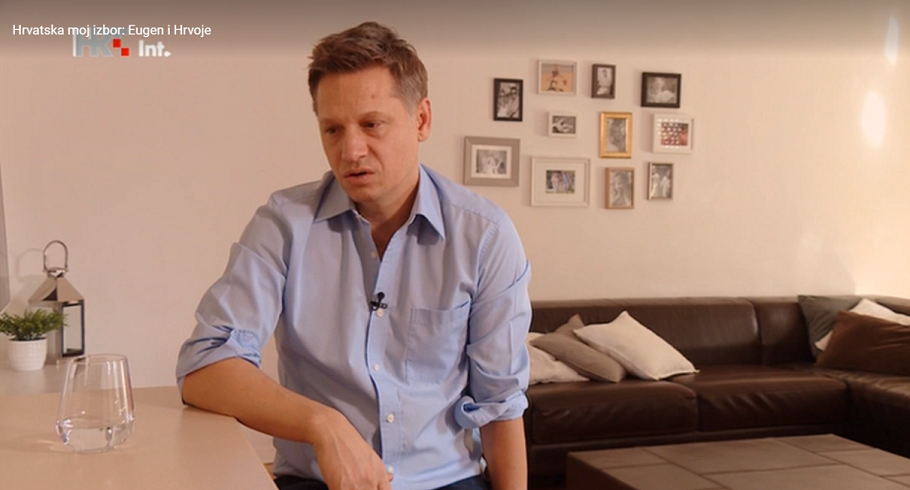
Thanks, Eugene, stay safe and see you on the other side.
TCN is starting a new feature series on foreign experiences of sitting out covid-19 here in Croatia compared to their home country. If you would like to contribute, the questions are below. Please also include a para about yourself and where you are from, and a link to your website if you would like. Please also send 3-4 photos minimum to [email protected] Subject Corona Foreigner
If you would be interested to record a video version for our partners www.rplus.video please let us know in the email. Thanks and stay safe.
Foreigners Self-Isolating in Croatia: Do You Feel Safer Than in Your Home Country?
Firstly, how are you? Are you alone/with someone? Tell us a little about your situation and sanity levels.
What do you think about the economic measures the government is taking, are they helping your business? (PLEASE IGNORE IF THIS DOES NOT AFFECT YOU)
When did you realise that corona was going to be a big issue?
What is your impression of the way Croatia is dealing with the crisis? How safe do you feel?
Now compare that to your home country and how they are handling it. What is Croatia doing better/worse?
What about official communications from the authorities, compared to your home country?
What’s the one thing you wish you had taken with you into self-isolation.
One thing you have learned about yourself, and one thing you have learned about others during this crisis.
TCN has recently become a partner in Robert Tomic Zuber’s new R+ video channel, initially telling stories about corona experiences. You can see the first TCN contribution from this morning, my video from Jelsa talking about the realities of running a news portal in the corona era below. If you would like to also submit a video interview, please find Robert’s guidelines below
VIDEO RECORDING GUIDE
The video footage should be recorded so that the cell phone is turned horizontally (landscape mode).
There are several rules for television and video news:- length is not a virtue- a picture speaks more than a thousand words
In short, this would mean that your story should not last more than 90 seconds and that everything you say in the report should be shown by video (for example, if you talk about empty streets, we should see those empty streets, etc.).
How to do it with your cell phone? First, use a selfie camera to record yourself telling your story for about a minute and a half. Ideally, it would be taken in the exterior, except in situations where you are reporting on things in the interior (quarantine, hospital, self-isolation, etc.). Also, when shooting, move freely, make sure everything is not static.
After you have recorded your report, you should capture footage that will tell your story with a picture, such as an earlier example with empty streets.
One of the basic rules of TV journalism is that the story is told in the same way as a journalist with his text. Therefore, we ask you for additional effort. Because we work in a very specific situation, sometimes you may not be able to capture footage for each sentence of the report. In this case, record the details on the streets: people walking, the main features of the city where you live, inscriptions on the windows related to the virus, etc.
The same rules apply if you are shooting a story from your apartment, self-isolation, quarantine. We also need you to capture footage that describes your story.
When shooting frames to cover your reports, it is important that you change the angle of the shot (in other words, shoot that empty street from several angles). Also, when shooting a detail, count at least five seconds before removing the camera to another detail.
The material should be about 5 minutes long (90 seconds of your report + frames to cover your story).
After recording everything, send us to Zagreb, preferably via WeTransfer to [email protected]

